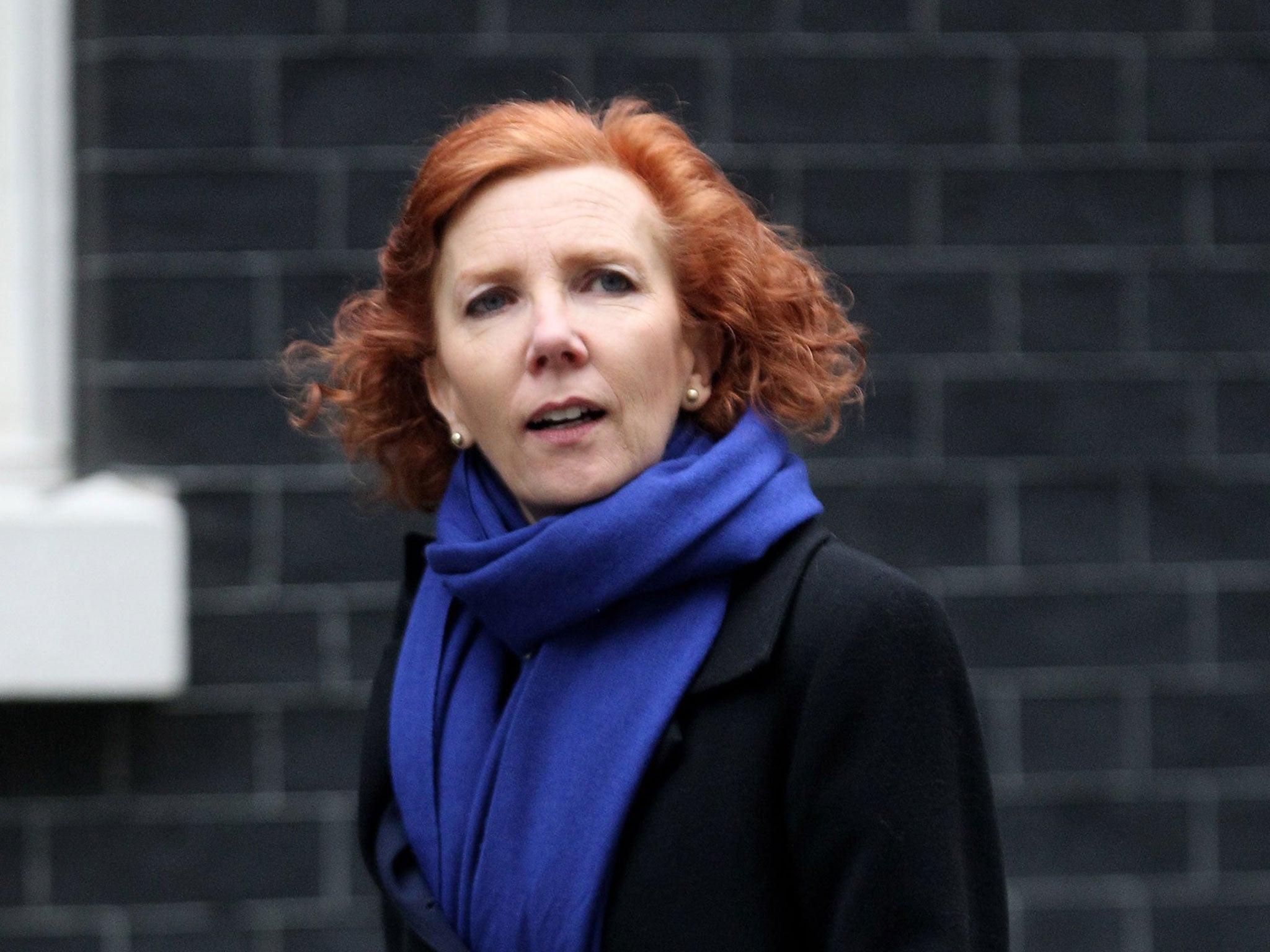Right to die: Labour leader in the House of Lords reveals that she 'would have considered a mercy killing' of her husband Stuart Hercock
Baroness Royall of Blaisdon will make an impassioned plea to change the law to allow assisted dying

Your support helps us to tell the story
From reproductive rights to climate change to Big Tech, The Independent is on the ground when the story is developing. Whether it's investigating the financials of Elon Musk's pro-Trump PAC or producing our latest documentary, 'The A Word', which shines a light on the American women fighting for reproductive rights, we know how important it is to parse out the facts from the messaging.
At such a critical moment in US history, we need reporters on the ground. Your donation allows us to keep sending journalists to speak to both sides of the story.
The Independent is trusted by Americans across the entire political spectrum. And unlike many other quality news outlets, we choose not to lock Americans out of our reporting and analysis with paywalls. We believe quality journalism should be available to everyone, paid for by those who can afford it.
Your support makes all the difference.Labour’s leader in the House of Lords will tomorrow make an impassioned plea for her fellow peers to change the law to allow assisted dying because of her own experience when her late husband became ill.
In an interview with The Independent, Baroness (Jan) Royall of Blaisdon revealed that she would have considered a mercy killing of her husband Stuart Hercock, who died from prostate cancer at 62 in 2010, if he had lived longer.
She said: “If he had got sicker and had wanted to die, then I know there would have been moments when I would have thought about helping him to die…..He would not have wanted me to do that…He would have been worried because of the law as it stands.”
Lady Royall, 58, said: “If this choice [assisted dying] had been there then I’m sure it is something he would have chosen.”
She recalled: “By the time he was diagnosed, it was too late; it had spread to his bones. We knew then that the illness was terminal. He lived for one year and 10 months. We had the most amazing time, a fabulous time, we travelled to the United States a few times.
“When Stuart died, he was not ready to die. Up to a couple of hours beforehand, we were still talking about the future….We did, of course, talk about dying. We wept together about dying.”
In fact, during a marriage of almost 30 years, they had already talked about death before Stuart became ill.
“We agreed that if people are terminally ill and have a very short time to live, they should not have to suffer. They should be able to exercise a choice to die,” she said.
That view was reinforced when an elderly neighbour and friend, Rosemary, got cancer and was living in a hospice.
After a birthday party where she said goodbye to her family and friends, she told Lady Royall: “I just want to die. I have had enough.”
She lived for another three weeks, and Lady Royall believes she should have had the option not to do so.
“The law as it stands is an unfair burden on those who are dying. You want calm, peace, dignity,” she said.
Lady Royall, speaking personally rather than on Labour’s behalf, will be one of about 130 speakers queuing up to speak in a heated Lords debate today which could last for 10 hours.
On a free vote, the House will decide whether to give a second reading to the Assisted Dying Bill introduced by Lord Falconer of Thoroton, the Labour peer and former Lord Chancellor.
The Labour peer, who was political adviser to Neil Kinnock when he was party leader, said the House of Lords was “a good place” for the debate as it has a good record of discussing conscience issues like stem cell research. Diplomatically, she added that “the predominantly elderly House” had many members who had experienced the death of loved ones.
She sensed that, among both politicians and the public, opinion is moving in favour of assisted dying. Some 200 peers have entered the second chamber since the issue was last debated in 2009.
“I think the mood is changing,” said Lady Royall. “People’s minds are more open…. It is no longer seen as anti-Christian or anti-religion. It’s the right place and the right time. The courts have said that Parliament should debate this issue.”
She insisted there were enough safeguards in the Bill to allay fears that old people will decide to die so they would not be “a burden” on their families, or could be pressurised into taking their life by family members anxious to gain their inheritance.
Lady Royall dismissed as “a load of rubbish” claims by some doctors that they would have to form “death squads”, saying: “It would be self-administered.”
Whatever their views, she hopes peers will give the Bill a second reading tomorrow so that it can be discussed in detail in its committee stage. But she admitted that, even if the measure is passed by the Lords, such a sensitive issue is unlikely to be approved by MPs in the run-up to a general election.
“Ultimately, it will be the responsibility of the House of Commons, as our elected representatives, to take this forward,” she said.
“I believe it is only a matter of time. But these things can take years.”
Join our commenting forum
Join thought-provoking conversations, follow other Independent readers and see their replies
Comments